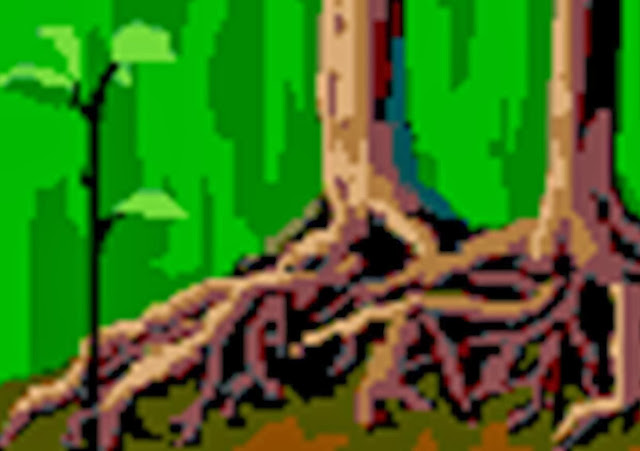(Writing
by Sheila Gail Landgraf)
William
Jennings Bryan once said “Destiny is not a matter of chance; it is a matter of
choice. It is not a thing to be waited
for, it is a thing to be achieved.” This
was the case for two brothers about to face one another after years of unresolved
anger.
What
would be the outcome of Jacob meeting Esau?
No
one knew.
Neither brother knew how the other would
react.
Jacob
was prepared for the worst case scenario.
He had divided his children among Leah and Rachel and their two female
servants. He put the female servants and
their children in the front, Leah and her children next, and Rachel and Joseph
in the rear. In other words; he put the
one’s he loved the most in the most protected place.
After
everyone was in place Jacob looked up and saw Esau and his four hundred men
thundering toward his caravan. Jacob gathered
all his courage and moved to the front of his family, dismounted his ride, and bowed down to the ground seven times as he
approached his brother.
To
his utter amazement Esau ran to meet Jacob and embraced him. He threw his arms around his neck and kissed
him. Together, right there in the middle
of the land, the two brothers embraced and wept. Years and years of tears were released, tears
long held back and burden after burden was lifted from the struggling shoulders
of two brothers that needed to forgive one another. Finally they looked up from each other.
“Who
are these with you?” Esau asked.
“They
are the children God has graciously given your servant” said Jacob.
Then
the female servants approached with their children and bowed down. Next came Leah and her children. Last to bow were Rachel and Joseph.
“What
is the meaning of all these flocks and herds I met?” asked Esau.
“To find favor in your eyes my lord,” said Jacob.
Note
that Jacob calls Esau “my lord” three times in this passage of scripture. It was a fulfillment of Isaac’s blessing to
Esau that we studied before. The words
are found in Genesis 27:40: “You will live by the sword and you will serve your
brother. But when you grow restless, you
will throw his yoke from off your neck.”
“I
already have plenty my brother,” said Esau.
“Keep what you have for yourself.”
“No,
please!” said Jacob. “If I have found
favor in your eyes, accept this gift from me.
For to see your face is like seeing the face of God, now that you have
received me favorably. Please accept the
present that was brought to you, for God has been gracious to me and I have all
I need.”
Because
Jacob kept insisting, Esau kept the gifts.
Then
Esau said, “Let us be on our way; I’ll accompany you.” But
Jacob told Esau that the children were young and they would be slow
walkers. He said he needed to care for
the ewes and cows nursing their young.
The animals would not be able to journey another day without problems to
their health. Jacob told Esau to go on
ahead and they would come slowly behind him when they had time to take care of
all of their needs and the needs of the animals. He agreed to meet Esau in Seir. Esau offered to leave some of his men, but
Jacob said that would not be necessary.
Esau
went to Seir, Jacob however went on to Sukkoth, where he pitched a tent for
himself and his family and made them a temporary home. He also made temporary shelters for his livestock.
That is why the place is called Sukkoth.
Sukkoth means “temporary shelters” and that is the name given for the festival and the Holy Days of
God that comes for eight days each Fall season.
The temporary dwellings or booths used each year at Sukkot, are similar “temporary
shelters.” It is interesting to note that some of these shelters at Sukkoth were made for housing livestock; as
so many people believe Jesus was actually born during the feast of Sukkot, and he was housed in a
manger in a place that provided shelter for livestock at his birth.
Then
Jacob crossed the Jordan and rode to Shechem in Canaan and camped within sight
of the city. The blessing he had
requested from God at Bethel; asking that he be allowed to return to his homeland in peace,
had been accomplished.
Shechem
is the narrow valley between Mt. Gerizim and Mt. Ebal, approximately 65km north
of Jerusalem. This strategic location
was between the north and south and east and west main roads. It was here that existed the well we now
called “Jacob’s Well.” That was not the
only water supply though, there was conduit that ran out of a cave that also
provided water to the residents in this area.
For
a hundred pieces of silver, Jacob bought the plot of ground where he pitched his tent from the sons of Hamor, the Father of
Shechem. This was the second plot of land bought and paid for from money of Abraham’s descendants in the land of Canaan.
This spot was actually the same place where Abraham built the first altar
to God when he first crossed into the promised land himself. It was the same place, close to the same terebinth tree, from years earlier.
There Jacob set up an altar and called it El Elohe Israel, which means
El is the God of Israel, or Mighty is the God of Israel.
Seventeen
centuries later a man named Jesus, a descendant of Jacob, would walk to this same
city and go to this same well in the noontime heat. There he would have an
interesting conversation with a Samaritan woman who would lead many to
believe that she had found The Messiah of Israel, the very Son of
God.






